Penn Badgley Explains ‘You’ Ending, Says Goodbye to Joe Goldberg
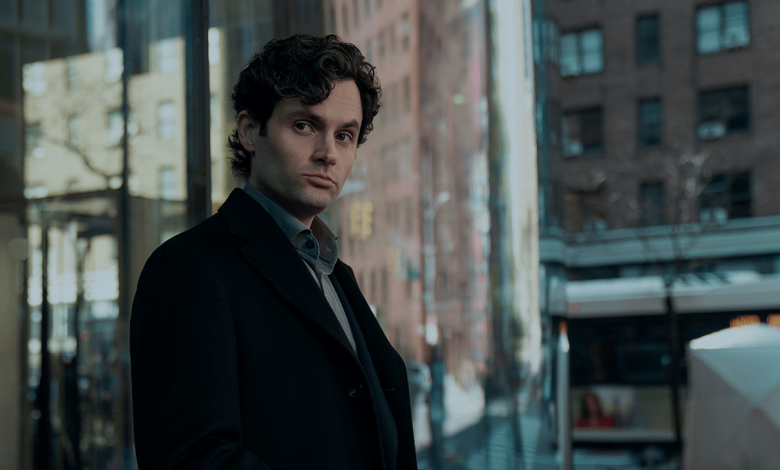
[This story contains MAJOR spoilers from You season five, including the series finale, “Finale.”]
Having known Joe Goldberg the best after playing the tortured-yet-desired character for five seasons of You, Penn Badgley wanted one thing in the final season: to deconstruct Joe as a romantic icon.
اRelated Posts:
While his character has captured audience attention each season, Joe has also questionably captured some hearts, on and off screen, and that’s exactly what Badgley didn’t want as Netflix‘s hit show came to a close with season five. “What I believed was critical was that Joe finally be undeniably and very viscerally perceived and felt as a sexual predator, because that’s what he is,” he tells The Hollywood Reporter.
Each season typically starts as a love story — and season five was no different — though they each take a turn, with Joe killing almost every one of his love interests (plus others) in the name of, well, love. In the final season, what starts as a happy marriage with Kate (Charlotte Ritchie) quickly switches as she starts to unravel who Joe truly is. At the same time, Joe’s new obsession, Bronte/Louise (Madeline Brewer), ultimately becomes his downfall as she’s secretly out to avenge Guinevere Beck’s (Elizabeth Lail) death from season one.
“It was really important that in the end, we all understood and agreed that he’s not gonna be taken down in the box, he’s gonna be taken down in the bedroom,” Badgley tells THR of delivering Joe a brutal ending — his savage attempt to kill Bronte backfires when she shoots him in the genitals and he is arrested, convicted and sentenced to life in prison with no parole. “In the box he’s actually transparent about who he is, or at least he’s the most transparent about who he is, it’s everywhere else where he’s able to create a fantasy that even if it’s not convincing, it’s charming and seductive enough that people are willing to be convinced.”
Below, Badgley breaks down the fifth season and series finale, including his storylines with Bronte and Kate, why “this show has been something of a touchpoint culturally,” his preparations for that intense ending, if he’s really satisfied with Joe’s punishment and what he will take away from You.
***
Are you looking forward to not saying, “Hello, You,” anymore or will you kind of miss it?
(Laughs) Yeah. There’s, of course, things about it that I’ll miss, but only in time. I haven’t had enough time to miss it yet.
As this journey with Joe comes to an end, what do you make of your whole experience?
There’s a few aspects. One is an uncommon part of this show, which is how central and somewhat alone Joe is as a figure. Every season is a new cast, and practically for me, it’s a new crew because we move cities. That’s rare, it’s a show called You starring me, and I’ve never had something like it before. I’ll never have something like it after. For it to go this long and for it to be this popular and hinge so much on this guy’s thoughts and unspeaking face… it’s a technical role, so I really have enjoyed getting to flex my of technical proficiency. It’s just fun to lift something up like that as an actor. Then on the deeper thematic side, it’s been really interesting to see such a figure like him garner so much attention and be a part of that cultural conversation.
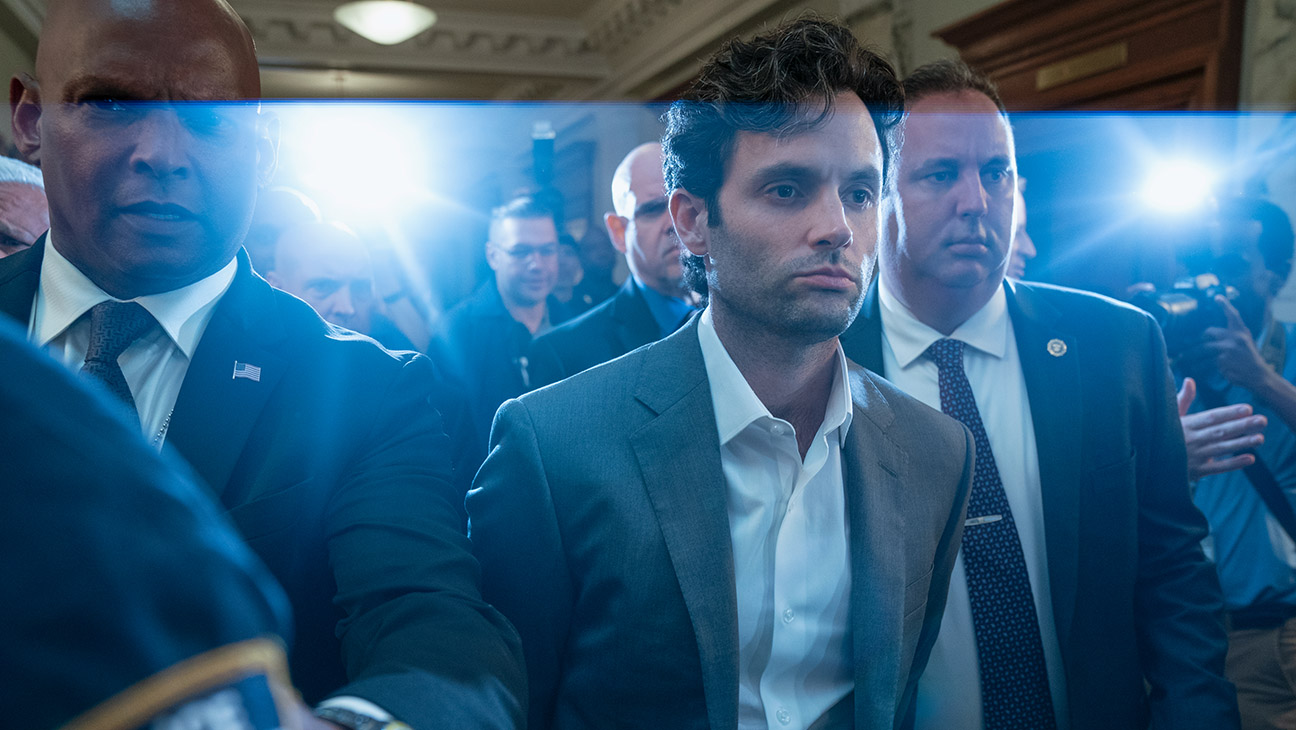
Do you feel proud of what you accomplished with the series and bringing Joe to life?
Definitely, absolutely. Is it 50 hours of television? Across the 50 hours, there are a few points where I could have been a bit more on my A game. But I do feel good, particularly in the end. I think a show like this has to stretch the audience’s capacity for belief and disbelief, it has to go to new and absurd places every time in order to find something new. And the camp and absurdity is part of what makes it an enjoyable ride.
If it was a more clinical portrayal of a serial killer, I think it would be insufferable. We don’t need 50 hours of that. So the thing has really been more about a deconstruction of romantic tropes, and what we all think about love and when desire turns it into something else that feels and looks like love, but really isn’t at all, and how we all experience that in much smaller ways and relationships. We participate in that and we even do it ourselves.
So I’m proud that this show has been something of a touchpoint culturally. It’s been fun, and it’s also something that has been a part of an interesting conversation over the last eight years or so. A lot has been happening in the world where the conversations and themes of this show are so relevant, and it’s interesting to be a part of something like that.
When you started filming for this final season, returning to New York where it all began, what was going through your head as you prepared to say goodbye to this character?
Joe is, for better or worse, very second nature for me. I was glad that it was in my home. I live in New York, or at least I’ve been here for a long time. The writers promised me it would be a return to form, and I don’t think that it left its form. I do think that the show, the latter half of every season, does something that’s very different from the first half. The first half is telling the love story that on the surface it’s meant to be about, which draws people in — using all of the tropes of romantic stories at the pop culture level.
Then the second half is deconstructing that and revealing him to be who we say he is from the outset, which, of course, somehow people either forget or overlook, or just are willing to tolerate all throughout. Every season they do the impossible; they take it to some crazy places and then stick the landing, and so I trusted that they would do it again. I trusted them enough that it was like, “All right, it’ll be difficult at points, it will be crazy, but we’re gonna do it.” And by the time I saw the final episode, I thought it was really gratifying. It’s like, “We did what we came to do and we put this man to bed in the right way.”
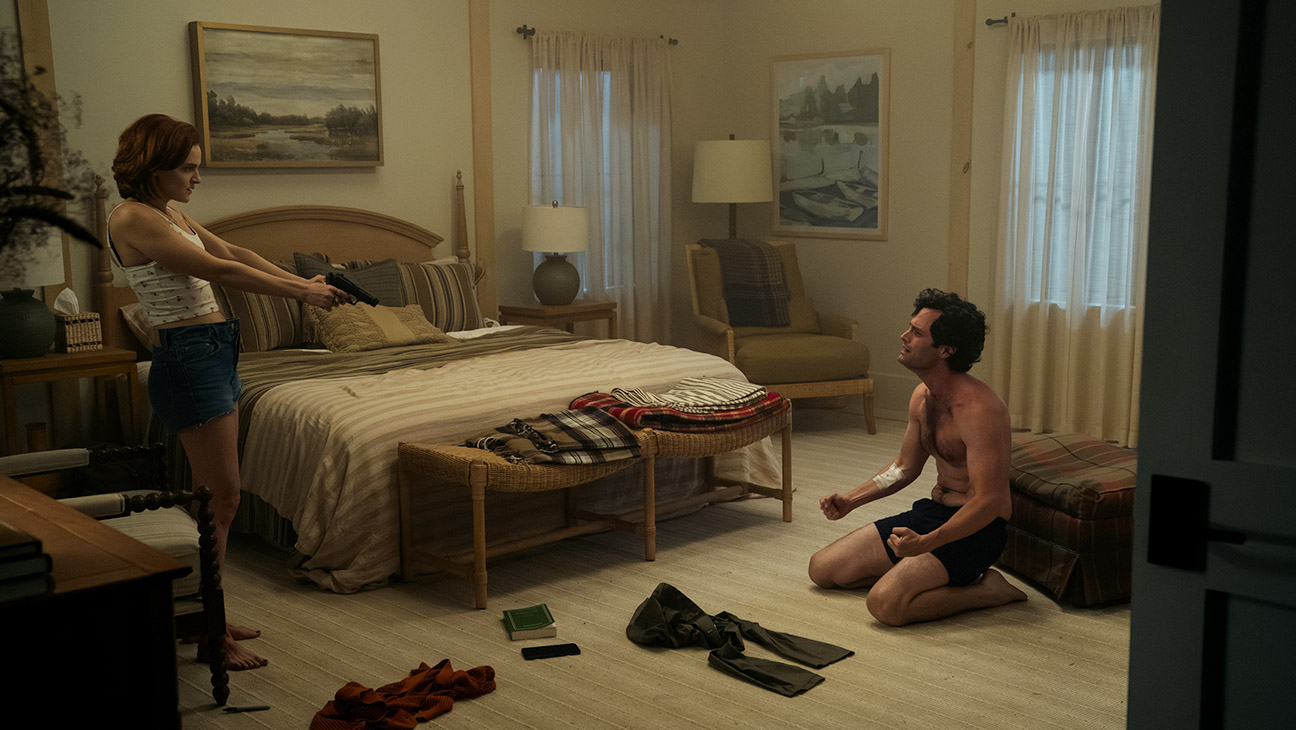
I spoke with co-showrunners Michael Foley and Justin W. Lo, and they said they had conversations with you about “making sure Joe was at his most horrific this season.” Can you expand on what that meant for you, and if you feel you succeeded in doing that?
What I believed was critical was that Joe finally be undeniably and very viscerally perceived and felt as a sexual predator, because that’s what he is. The first episode, he’s masturbating in the street outside a woman’s apartment, who nine episodes later, he strangles. When you say it like that it’s awful, and I’m sorry to say it like that. It’s jarring, right? But it’s like, guys, that’s what happened.
That’s actually what is happening in this show, while a number of other things are happening. And it isn’t even so much the sleight of hand of a magician — we’re showing you exactly what we’re doing from the get-go. But the sleight of hand part — whether it’s right or wrong, it just is the way the show has chosen to be from the outset — is we withheld the viewer from seeing those most visceral moments where we didn’t see him actually murder Beck. He didn’t kill Candace (Ambyr Childers). We saw him kill Love (Victoria Pedretti) but in self-defense. The people that you really saw him murder were all men for the most part. I’m not exactly sure, but I think that when a woman dies, if it’s at Joe’s hands, we never see that moment. We only saw Candace with Love. Season four, we didn’t see any of them happen at first, because it was all happening while he was Tyler Durden-out [referencing the 1999 movie Fight Club].
It was really important that we not only see him in the act of abuse, but in seduction and manipulation, and that’s really the proverbial bedroom. And this wasn’t my idea in the terms of the specifics, but to me it was really important that in the end, we all understood and agreed like, he’s not gonna be taken down in the box, he’s gonna be taken down in the bedroom. In this house, in this fiction, this fantasy that he’s trying to create. Because in the box he’s actually transparent about who he is, or at least he’s the most transparent about who he is, it’s everywhere else where he’s able to create a fantasy that even if it’s not convincing, it’s charming and seductive enough that people are willing to be convinced.
So it was important that was where he’s sort of frozen and caught in his most vulnerable state, and that, for better or worse, our female protagonist, Bronte or Louise, played by Madeline Brewer, I think brilliantly, she was as dangerously close to a moment of nonconsensual sex. For the first time we’re seeing really the true colors of this man and what he’s doing, and for the first time ever we see him in the act and we don’t want it to happen. It was really important to me that he’d be deconstructed as a romantic icon. I was singing that song since season one, but I was really explicit with it with the writers throughout this season.
When you first read the script and learned that Bronte (Madeline Brewer) was actually playing Joe, seeking revenge for Beck’s (Elizabeth Lail) death from season one, what was your initial reaction?
I was into it. The funny thing about this show is it never goes where you think it’s gonna go. I mean, it’s following a form which it’s meant to, but the way that they do it every time, it’s always like, “Wow, this is bananas, OK, all right.” I still feel every time I’m reading through a season, I’m always disappointed when Joe continues to be Joe and it’s not going to work out between him and his romantic interests; it’s still disappointing. It’s a dark, kind of awful feeling. And when I found out what was happening with Bronte, I remember feeling a bit of his sense of betrayal, because again, I talk about it in a certain way, but it feels good to tell a love story I think (laughs).
You want these people, no matter what’s happened, to be in love and you want it to be real. So I remember feeling this sense of betrayal, but also knowing like, “Oh this is great, this is really what needs to happen.” But even I couldn’t tell exactly where it was going before I read episodes eight, nine and 10, and that’s when I felt like, “OK, it’s a bit of a slow burn at first, but where they bring it in the end is really satisfying.”
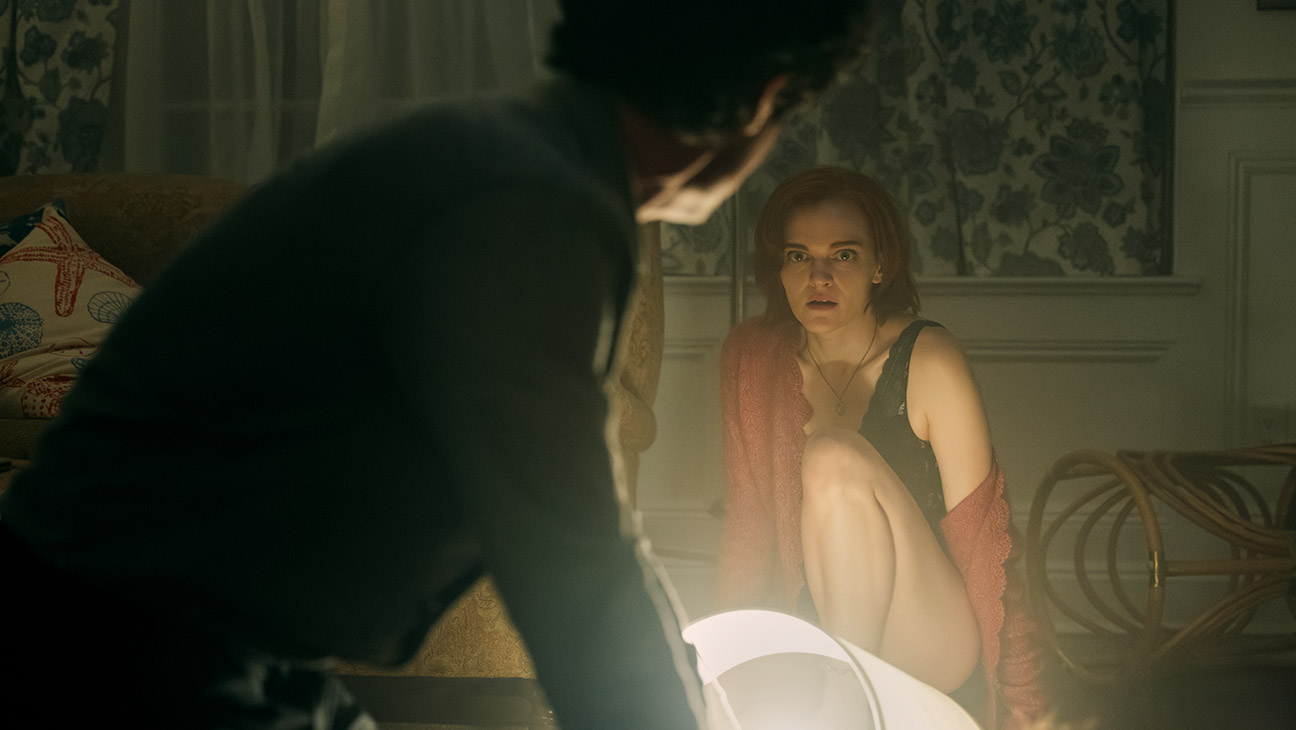
Joe’s dynamic with Kate (Charlotte Ritchie) changed throughout the season, where she goes from the love of his life to one of his toughest rivals yet. Can you talk about what it was like filming those really heated moments and scenes with Charlotte this season?
First of all, I love Charlotte. I think she’s a unique figure in the show. You can’t have every kind of narrator, and I think something about her character has this quality, and it literally might just be that she’s very English, that threatens to render Joe irrelevant or just less powerful, less of a menace. There was something about season four and what she did that I really loved and in this one too, she does something that’s different. It’s like the record skips with him, and he doesn’t quite know what to do with her. By the time he just has this unbridled hatred for her, it’s always intense to do no matter how used to it I get, but it was also fun because of how confidently he hates her by the end (laughs).
Charlotte and I have a lovely rapport and those scenes to me were like the evolution of the season three marriage therapy scenes with Love, which I also really liked. Kind of the closest thing to theater this show ever gets, where I have the longest scenes and the most lines and can really just sort of like play and go.
In the episode where Joe becomes “the most visible man in New York,” he has social media, once a tool for him, used against him. Penn, I feel like you love a good TikTok trend or viral sound, so do you think Joe would have a favorite social media trend?
(Laughs) Hmm… maybe just like the rest of us, he would get distracted by cute kitten videos. Maybe the cat POV TikToks, where they put a GoPro on a cat’s collar and then the cats go around all day and you can see them climbing up trees and walking across fences. It’s really amazing, so maybe he would like that. There’s something about Joe that’s feline.
In the finale, we see Joe truly turn into this monster, and this animalistic nature comes out, especially when he’s running through the woods. How did you prepare for that sequence, and what was going through your head at the time?
It was a sequence with a lot of levels to it. It was partly fun, it was partly exhausting, it was very intense, some of it was quite disturbing. I was finally having to do the things that we don’t see him quite do with the woman he claims to love. I’ve done a lot of strangling with men, and fight scenes and all kinds of intensity, but some of that was really just a little bit of a deeper and newer layer.
It was really important to me that he’d be as naked as possible because that’s the state in which he’s at his worst. Killing is the obvious atrocity, but the more insidious and subtler and more invisible atrocity is the way he manipulates people, and that’s the way he uses himself romantically and sexually. So to me, that’s the state he had to be frozen and the one time in my life I’ll ever vie with the writers to have me in a state of undress (laughs). Never before have I done that and may not again, but it was really important.
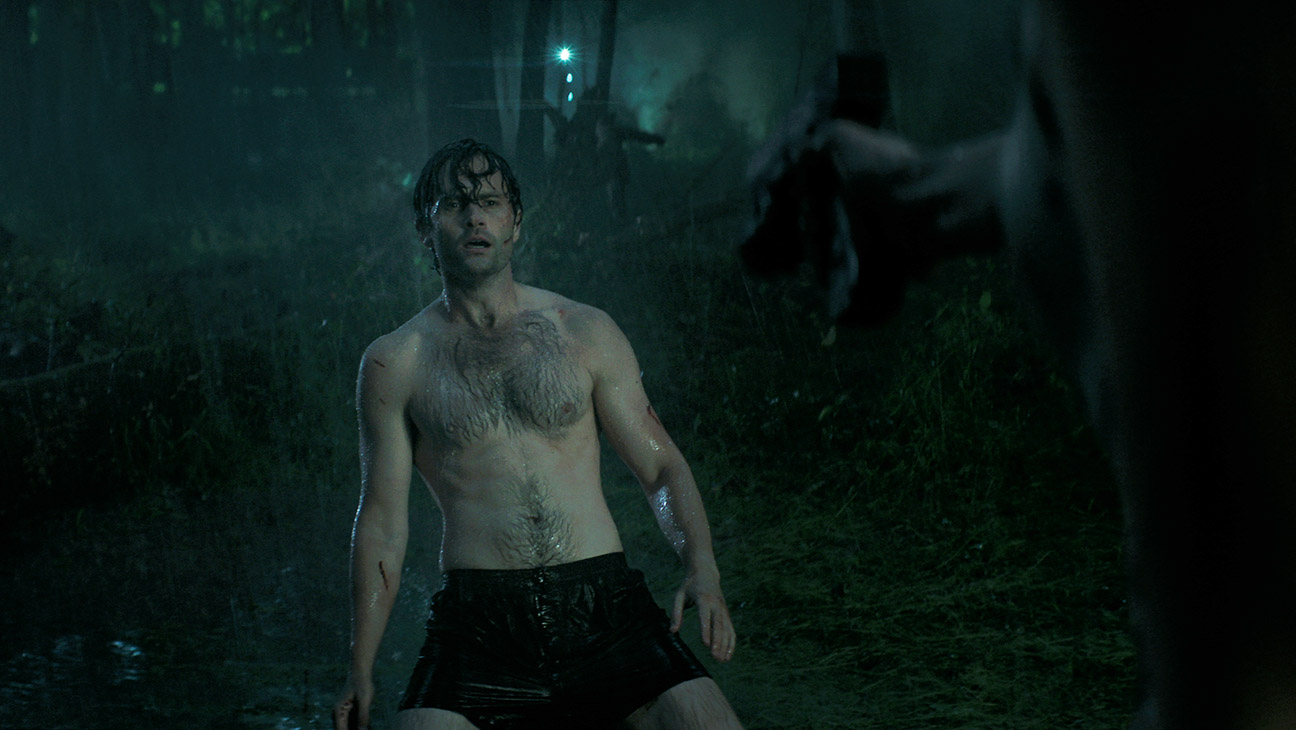
Do you feel satisfied with Joe’s punishment in the end? Mike and Justin had also mentioned there was an idea thrown around at one point of locking Joe in a cage and burying him underground.
Let’s make this man real for a second and make all of his victims real. There is no end that’s satisfying. It’s a tragedy. To imply that anyone could be satisfied by his end is to say that we want retribution and vengeance, and that’s not the same thing as justice. Nothing is satisfying when people are being killed and abused and manipulated, because of their trauma.
The show’s not meant to be real. It’s never been a clinical portrait of a man like this, but even then it’s still about real things. In the end, I don’t think anyone could be 100 percent satisfied, no matter what happened with a character in a show like this. But if you think about it, it wouldn’t be right to be satisfied. To me, the most satisfying thing would to see him be tortured by all the women he’s hurt before, but that that would satisfy bloodlust. It’s not satisfying our our need for justice. I think the only kind of satisfaction that comes with true justice in a case like this is just time.
I think we ended it 100 percent in the right way that it needed to be, and then in time I think it will become more satisfying. I’ve been sitting with the ending longer than anyone who’s watching. All of us who made it have been sitting with it for a year longer than anyone else, and I would say a year later, I feel really confident that it’s a great finale, because the missing piece is just time. To whatever degree anybody really takes this stuff to heart and feels the reality of these characters, especially his victims, it takes time to heal. Otherwise, yeah, I think we did all the things we needed to do. We checked all the boxes.
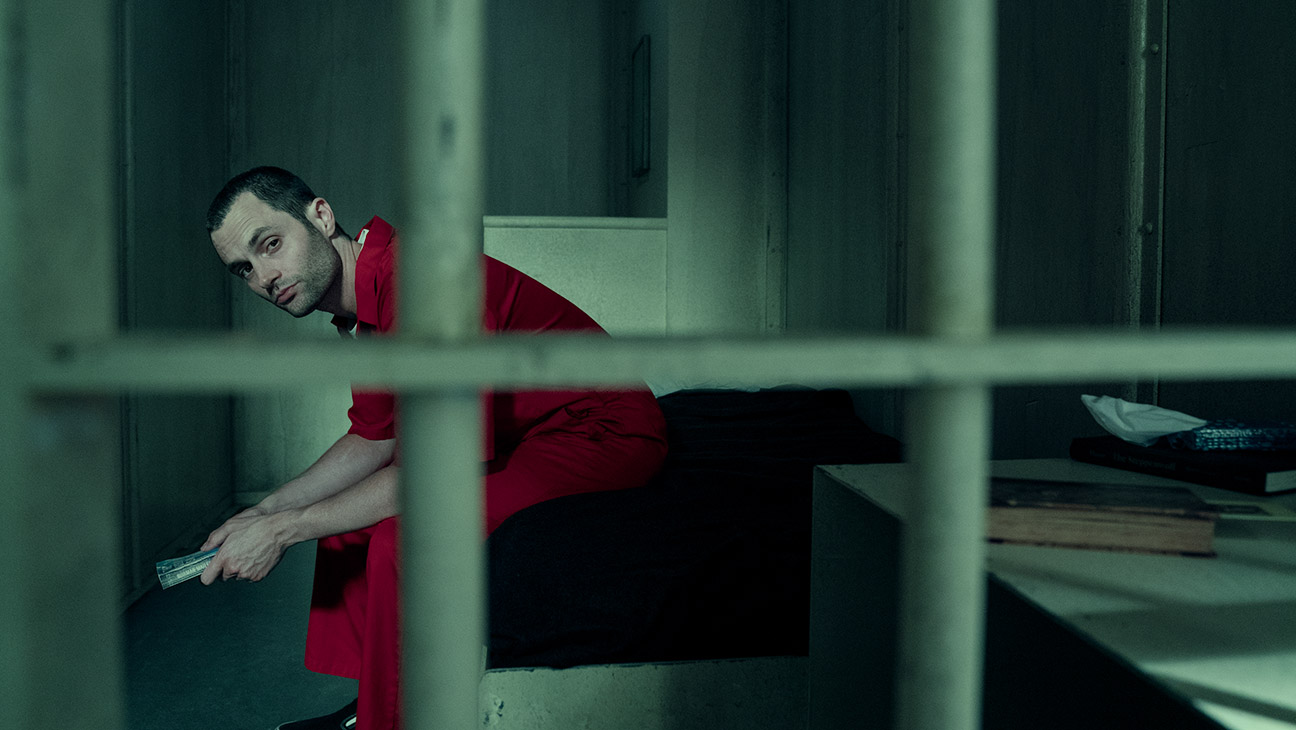
As this You chapter comes to a close, is there anything you take away from Joe personally?
It’s hard to say exactly what, because I think in time I’ll know a bit more. If anything, I’ve just been reflecting on who not to be as a man and a father and a husband, and not the obvious things, like don’t manipulate and murder people. That’s clear. It’s far more about the ways in which desire makes love a self-centered thing and then it’s no longer love. It’s no longer a mutually empowering experience but something where you’re just concerned with your own gratification, your own needs, and we all do that at different points all throughout any relationship in subtle ways and ways that are not so subtle. So I’ve just really had to think about that. Those are the places where I connect with him and try to understand the best I can. I think that’s the only thing that’s enabled me to ground his performance all throughout, and that’s the most relatable part of him to me.
***
Season five of You, along with all previous seasons, is currently streaming on Netflix. Read THR’s finale postmortem with co-showrunners Michael Foley and Justin W. Lo.
Source: Hollywoodreporter
HiCelebNews online magazine publishes interesting content every day in the TV section of the entertainment category. Follow us to read the latest news.
Related Posts
- Health and Wellness Influencer Sparks Backlash After Revealing She Used Weight Loss Medication
- Lana Del Rey Joins Jelly Roll at Stagecoach To Perform ‘Save Me’
- Jiggly Caliente, ‘RuPaul’s Drag Race’ Contestant and ‘Pose’ Star, Dies at 44
- Anna Kendrick ‘Couldn’t Picture’ Who Rebel Wilson Would End Up with Until She Met Her Wife Ramona Agruma (Exclusive)
- Sebastián Lelio, Lukas Dhont, Jasmila Zbanić to Pitch New Projects to Investors at Cannes Market





